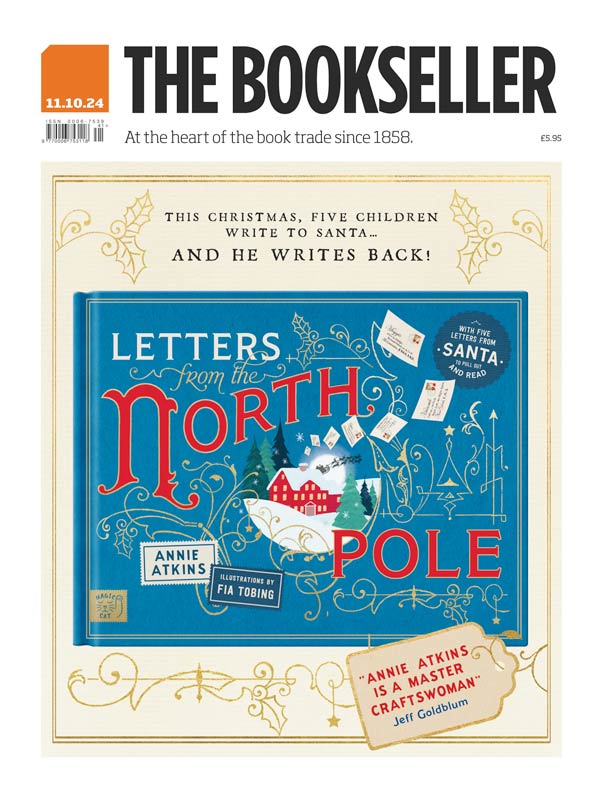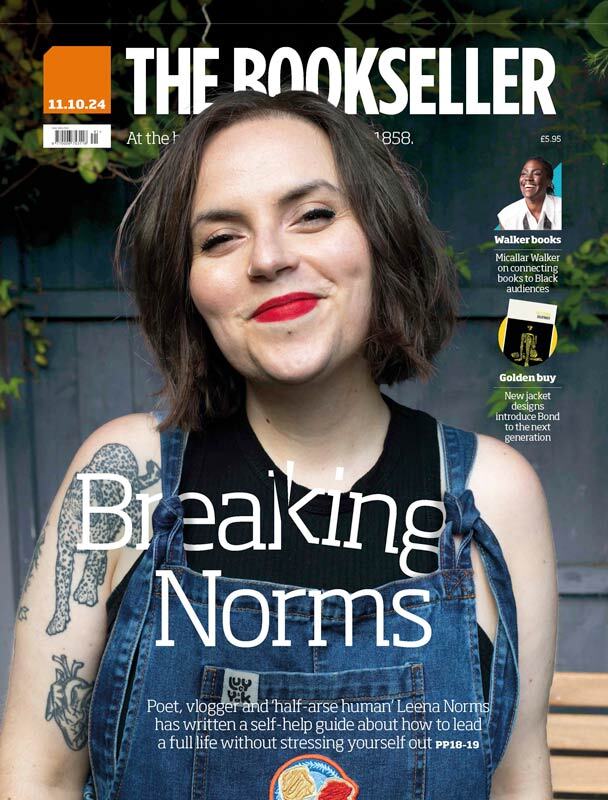You are viewing your 1 free article this month. Login to read more articles.
Can the current purple patch for New Adult publishing be sustained?
This year, Frankfurt Book Fair will include a space dedicated to the boom in New Adult publishing.

Caroline is deputy features editor at The Bookseller and chair of the YA Book Prize, as well as being a co-host of children's book radio ...more
This year, Frankfurt Book Fair will include a space dedicated to the boom in New Adult publishing. In the fair’s own words, the 8,000 sq metre area will offer “an additional home to the successful New Adult genre and its subgenres Romantasy and Dark College [known in the UK as Dark Academia], along with many queer publishing houses”. The move reflects a growing recognition of a category that had previously been underserved by mainstream publishing.
Definitions of New Adult vary, however it is widely considered to sit between Young Adult (YA) and adult publishing, predominantly centred on and catering to people in their early 20s. As Daphne Tonge, founder and m.d. of subscription box retailer Illumicrate and publisher Daphne Press, puts it: “They are books that feature the coming-of-age themes, pacier plot and strong voices found in YA publishing, but with characters aged up with issues relevant to over-18s.” Soraya Bouazzaoui, senior commissioning editor at Headline Eternal, expands: “I call New Adult the ‘second coming-of-age’, where readers are on the cusp of redefining who they are, their boundaries and what they want to be after entering the workforce.”
This is echoed by Anissa de Gomery, founder of book subscription box Fairyloot: “While YA is about coming-of-age, New Adult delves into what happens after—the phase where you’re expected to have it all figured out but often don’t. The themes are more mature than YA, but it’s not quite the same as adult fiction, where characters are generally more settled. It’s this transitional space that feels both relatable and aspirational.”
Changing the grey area
Though it is more commonly used in some territories, the New Adult moniker has not caught on in the UK yet. De Gomery explains: “I think the hesitation comes from the fact that New Adult is still a bit of a grey area. In the UK, there’s a tendency to stick with established genres, and it’s easier to market a book as YA or adult without having to explain what New Adult is. Plus, there might be a concern that the term could pigeonhole books in a way that limits their audience.” Zeno Agency’s Stevie Finegan admits that she does not use the term New Adult when pitching her clients’ work to publishers. “I’ll refer to a book being ‘crossover’, or I’ll mention it has spice, dark themes, or is for fans of the latest New Adult bestseller.”
Waterstones online children’s bookseller Sara Abou El Ella agrees that the problem with the term New Adult “stems from the definition itself—who is a new adult?”. While she believes it would be helpful to have an “upper YA” category to deal with topics such as drugs, mental health and sexuality, she feels embracing New Adult as a separate genre or category “would be a confusing and inefficient way to catalogue books” as there is already a place for these titles within existing genres. She continues: “Also, most shops wouldn’t have the space to create a separate bay for New Adult if it became a recognised genre.” While no customer has ever asked her for New Adult books or those specifically aimed at this age bracket, she notes “an incredible increase in sales” in the fantasy and romance genres, considered by many to be the current heartland of New Adult publishing.
Many others also report a rise in the popularity of New Adult in the past couple of years. Illumicrate has featured fewer YA books in its boxes over time, with Tonge saying: “Teenagers that grew up in the golden age of YA books have now aged up and are looking to read stories featuring themes more relevant to them now.” She believes self-publishing has driven the category’s growth. “There is clearly a readership there that wants these stories, and self-published authors are delivering in spades.” Bouazzaoui concurs: “What’s fuelled this is predominantly indie authors, who have thrived creating a space where university-set romances have been incredibly popular. I’d also credit fanfiction spaces like Fanfic.net, ao3 and Wattpad.”
Social media platforms such as BookTok have helped to propel New Adult into the spotlight, says De Gomery, by amplifying the voices of readers. She adds that “the sheer demand for stories with more mature themes, particularly in romance and fantasy” has played a big part in the industry taking more notice of this space. Finegan agrees: “When Sarah J Maas is dominating a publisher’s profit margins, when the bestseller list is all Fourth Wing and When the Moon Hatched, publishers can’t ignore the thirst for books like these.”
Teenagers that grew up in the golden age of YA books have now aged up and are looking to read stories featuring themes more relevant to them now
As such, UK publishers are actively looking to acquire more New Adult titles. “There are publishers that never would have touched sci-fi and fantasy suddenly hiring sci-fi, fantasy and horror editors [and] supporting seven-figure acquisitions,” Finegan tells me. Looking further afield, she states: “International publishers are now almost fully on the romantasy bandwagon. A year ago, a lot of territories still seemed tentative, now it seems to be what the majority of publishers are looking for going into FBF.” However, there are still a few territories that are not as interested. “I’ve been told that Japan and Korea are getting these kinds of stories from things like manga rather than translated fiction, and very sadly I am still getting pushback on queer stories from a not insignificant number of territories.”
While fantasy and romance continue to dominate the New Adult market, other trends are emerging. Bouazzaoui and Tonge mention the enduring popularity of contemporary romance, especially stories set at university or college, as does De Gomery, who adds: “One exciting trend that we’ve started to see is a resurgence of dystopian elements... This trend is likely to grow following the buzz around the new Hunger Games movie.” Tonge predicts that books with paranormal themes will be popular going forward, while Abou El Ella believes dark romance (romance novels that explore darker themes and mature content) will be “the next big subgenre that publishers will expand into”. Similarly, Finegan notes: “Now publishers are looking for dark romance, more experimental horror and otherwise trying to experiment. They’re actively looking for the next big thing for this audience.”
Finegan acknowledges that “we may already be reaching the peak of certain subgenres within New Adult” as manuscripts that “would have sold really easily in 2023 are now selling more slowly or not at all”. However, she continues: “These readers are still here and still hungry, so I think New Adult will continue to sell strongly, simply with a different subgenre within it leading the charge.” While Abou El Ella believes the market has become oversaturated, she feels there is still scope to expand in genres such as horror, graphic novels and historical fiction. Bouazzaoui warns against concerns about the direction New Adult is heading in. “I think we need to be cautious about dubbing a genre oversaturated, because there’s a consistent pattern of doing so when Black or brown authors enter the fold. With any genre, people can get fatigued, but fans of a specific genre will always come back to it.”
De Gomery adds: “There’s always a chance of oversaturation when a genre explodes in popularity, but it’s not necessarily about reinventing the wheel every time. Sometimes, it’s about telling a great story in a fresh way... As long as the stories feel engaging and there’s a unique voice or element that sets them apart, readers will always come back for more. That’s what keeps a genre thriving—innovation mixed with familiarity.”















